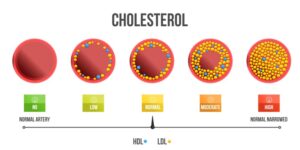The Importance of Integrated Care: Exploring Dual Diagnosis Treatment Approaches

Mental health and substance abuse counselors must gain awareness of the direct relationship between substance abuse and mental illness. Individuals with such combined diagnoses may not receive the necessary care without beginning a treatment plan that factors into how comorbid conditions affect each other. For many patients, mental illness and substance abuse are connected.
While individual factors may otherwise affect the progression of dual diagnoses, there are often common dynamics that trigger the relationship between mental illness and substance abuse. For instance, it is common for individuals struggling with mental health to gravitate toward substances to cope. Likewise, those struggling with substance abuse may have underlying mental health concerns that influence the substance abuse or are brought on by it.
Genetics and environmental surroundings also contribute to cues that may lead one to develop mental illness and substance abuse disorders, including addiction. The interconnectedness of these challenges must be considered in treatment plans addressing comorbidities. The need for integrated treatment is critical to treat the totality of comorbid health concerns. For more information on the importance of dual diagnosis treatment and types of integrated care, continue reading.
There are three levels of care for dual diagnosis treatment.
The levels of care for dual diagnoses vary between treatment facilities but generally consist of three main levels: inpatient, outpatient, and inpatient/outpatient combinations. When substance abuse and severe mental health concerns are treated, other levels of care may be integrated, including inpatient detox, residential treatment, and outpatient partial hospitalization. Outpatient therapy is generally recommended as an aftercare approach once the dual diagnosis treatment has been completed.
Inpatient, residential, and outpatient care are typical care treatment protocols.
Inpatient detox: Patients receive 24/7 medical care and supervision while detoxing. During this stage, patients undergo withdrawal and experience symptoms like intense cravings and physical discomfort as the addictive substances leave the body.
Residential treatment: After detox, patients return to residential dual diagnosis treatment. Here, patients are introduced to various modalities of care. Therapy styles like dialectical behavioral and cognitive behavioral therapy are integrated with group therapy, all of which focus on helping the patient create a recovery plan.
Outpatient partial hospitalization (PHP): For individuals struggling with mental health challenges and substance abuse but do not need 24/7 supervision, outpatient partial hospitalization is a course of action that may be introduced as a form of dual diagnosis treatment. Here, individuals attend therapy up to five days a week while living independently. This approach allows individuals to continue therapy while practicing sobriety and healthy lifestyle habits outside of treatment.
Aftercare treatment protocols: Once the individual has completed their dual diagnosis treatment, aftercare protocols typically consist of an outpatient therapist and, if necessary, a psychiatrist for ongoing care and relapse prevention.
The goal is an all-encompassing treatment for lasting recovery.
By approaching recovery from a dual diagnostic framework, all elements of the dual diagnosis are addressed with effective evidence-based treatments. Only when patients’ concerns are considered collectively do they receive all the tools they need to establish lasting recovery.









